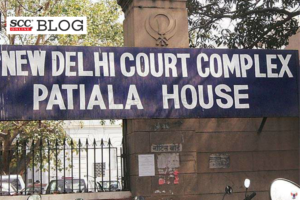Patiala House Courts, New Delhi: In a plaint to declare mandatory and permanent injunction in respect of a book titled ‘Gunning for the Godman: The true story behind Asaram Bapu’s conviction (‘the book’), Sudhanshu Kaushik, Additional District Judge while refusing to entertain the plaint stated that the Delhi High Court vide its order dated 22-09-2020 had passed a detailed direction to balance the right of the parties and accordingly set aside the ex-parte injunction.
In the matter at hand, Asaram Bapu was convicted by the Special Court (The Protection of Children from Sexual Offences) Act, 2012, (‘POCSO Act’), Jodhpur, Rajasthan for offences punishable under Section 342, 370(4), 120-B, 376-D, 376(2)(F) and 509 of the Penal Code, 1860 (‘IPC’) read with Section 23 of the Juvenile Justice Act (Care and Protection of Children) Act, 2000 (‘JJ Act’) for sexually assaulting a minor girl. The plaintiff was convicted by the same order for committing offences punishable under Section 370(4), 376-D, read with Section 120-B of IPC, which was suspended by the Rajasthan High Court till the disposal of the appeal filed by her. The plaintiff contended that the book contained false and defamatory statements in relation to her which would damage her reputation before her acquaintance and public at large.
Legal Trajectory
At an earlier stage, an ex-parte injunction was granted against publishing of the book by the predecessor vide its order dated 04-09-2020 which was vacated by the Delhi High Court vide order dated 22-09-2020 with the direction that a disclaimer stating that the story was based upon the judgement convicting the accused should be printed separately on a flier stuck on the cover page to the effect that the appeal of the plaint was pending before the Rajasthan High Court and her sentence was suspended till disposal of the appeal. Challenging the same, the plaintiff filed a Special Leave Petition before the Delhi High Court which came to be dismissed as well.
Court Analysis
The Court after perusing the order dated 22-09-2020 passed by the Delhi High Court stated that the parties had gotten a fair and reasonable opportunity to present their case. Further, noted that the High Court had also analyzed the details of the objectionable portions of the book and directed to balance the right of free speech and the right to protect reputation which are duly stated above.
The Court opined that since all the contentions of the parties, as well as the contents of the book were already exhaustively appreciated by the Delhi High Court, it would be judicial impropriety to re-appreciate these aspects at this stage for considering whether an injunction needed to be granted during the pendency of the suit. The High Court not only set aside the ex-parte order but also devised means to balance the respective rights
Doctrine of Merger
The Court stated that the doctrine of merger of judgement and orders in common law doctrine was founded on the principles of propriety in the hierarchy of justice delivery system.
The Court relied on UJS Chopra v. State of Bombay, AIR 1955 SC 633 which had held that the logic underlining the doctrine of merger was that there cannot be more than one decree or operative orders governing the same subject mater at a given point of time. It is the decree or the order of the superior Court which would remain final and operative.
The Court was of the view that to re-appreciate the same contention would result in judicial impropriety, forbidden in view of the doctrine of merger, therefore the application under Order XXXIX Rule 1 & 2 of Code of Civil Procedure, 1908 stood disposed of in terms of the order passed by the Delhi High Court without commenting on the merits of the case.
[Sanchita Gupta v Scroll Media, 2023 SCC OnLine Dis Crt (Del) 2, decided on 10-03-2023]

